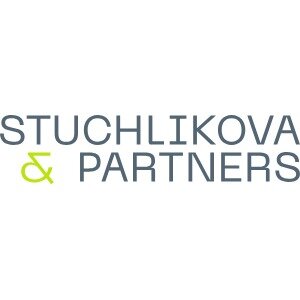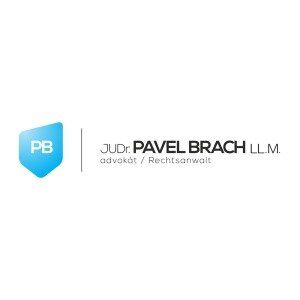Best Patent Lawyers in Czechia
Share your needs with us, get contacted by law firms.
Free. Takes 2 min.
Or refine your search by selecting a city:
List of the best lawyers in Czechia
About Patent Law in Czechia
Patent law in Czechia is governed by the Industrial Property Office. A patent grants the inventor exclusive rights to their invention, preventing others from using, making, or selling it without permission. In Czechia, patents are valid for 20 years from the filing date, and applicants must meet certain criteria to be granted a patent.
Why You May Need a Lawyer
There are several situations where you may need a lawyer for patent issues in Czechia. These include drafting and filing patent applications, responding to office actions from the Industrial Property Office, handling infringement disputes, and licensing agreements. A lawyer with expertise in patent law can help navigate the complex legal requirements and protect your intellectual property rights.
Local Laws Overview
In Czechia, patent law is primarily governed by the Patent Act. This legislation outlines the requirements for obtaining a patent, the rights and obligations of patent holders, and the enforcement mechanisms in case of infringement. It is important to comply with these laws to ensure the protection of your invention.
Frequently Asked Questions
1. What is a patent?
A patent is a legal document that grants the inventor exclusive rights to their invention for a specified period, typically 20 years.
2. How do I apply for a patent in Czechia?
To apply for a patent in Czechia, you must file an application with the Industrial Property Office and meet the requirements set out in the Patent Act.
3. What rights does a patent holder have?
A patent holder has the exclusive right to use, make, sell, or license their invention, preventing others from doing so without permission.
4. Can a patent be challenged?
Yes, a patent can be challenged through legal means, such as invalidation proceedings, if it does not meet the necessary requirements.
5. How long does a patent last in Czechia?
In Czechia, a patent is valid for 20 years from the filing date, after which it expires.
6. What is the role of the Industrial Property Office in patent law?
The Industrial Property Office is responsible for granting patents, examining applications, and resolving disputes related to patents in Czechia.
7. Can I file a patent application without a lawyer?
While it is possible to file a patent application without a lawyer, legal expertise can be valuable in navigating the complex requirements and increasing the chances of a successful application.
8. How can I enforce my patent rights in Czechia?
To enforce your patent rights in Czechia, you can take legal action against infringers, seek compensation for damages, or negotiate licensing agreements.
9. What are the grounds for patent invalidation?
Patents can be invalidated if they lack novelty, inventive step, or industrial applicability, or if they do not meet the formal requirements set out in the law.
10. How can I protect my invention internationally?
For international protection of your invention, you can file a patent application through the Patent Cooperation Treaty or the European Patent Convention, which provide a streamlined process for obtaining patents in multiple countries.
Additional Resources
For more information on patent law in Czechia, you can visit the website of the Industrial Property Office or seek guidance from legal professionals specializing in intellectual property law.
Next Steps
If you require legal assistance with patent matters in Czechia, consider consulting a lawyer with experience in intellectual property law. They can provide you with guidance on patent applications, enforcement, and protection of your rights.
Lawzana helps you find the best lawyers and law firms in Czechia through a curated and pre-screened list of qualified legal professionals. Our platform offers rankings and detailed profiles of attorneys and law firms, allowing you to compare based on practice areas, including Patent, experience, and client feedback.
Each profile includes a description of the firm's areas of practice, client reviews, team members and partners, year of establishment, spoken languages, office locations, contact information, social media presence, and any published articles or resources. Most firms on our platform speak English and are experienced in both local and international legal matters.
Get a quote from top-rated law firms in Czechia — quickly, securely, and without unnecessary hassle.
Disclaimer:
The information provided on this page is for general informational purposes only and does not constitute legal advice. While we strive to ensure the accuracy and relevance of the content, legal information may change over time, and interpretations of the law can vary. You should always consult with a qualified legal professional for advice specific to your situation.
We disclaim all liability for actions taken or not taken based on the content of this page. If you believe any information is incorrect or outdated, please contact us, and we will review and update it where appropriate.
Browse patent law firms by city in Czechia
Refine your search by selecting a city.










